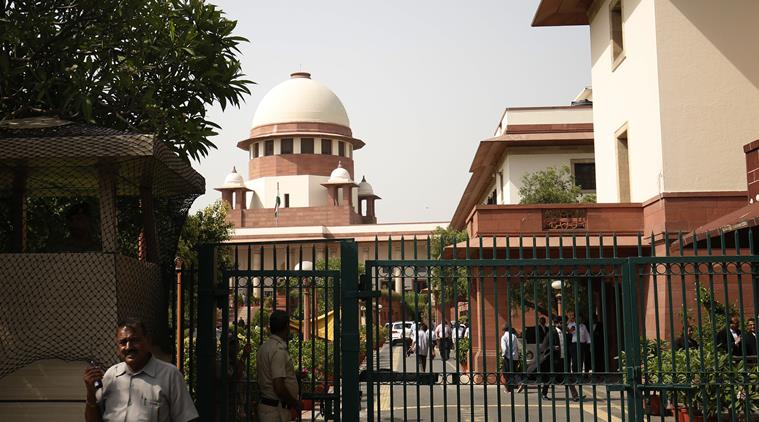 Supreme Court. (Express Photo Amit Mehra)
Supreme Court. (Express Photo Amit Mehra)
The Supreme Court’s directions on Tuesday to States and Union Territories to send names of candidates for the post of Director General of Police to the Union Public Service Commission is set to have an immediate bearing in Punjab where DGP Suresh Arora due to retire on September 30.
State government officials said they had yet to examine the SC direction in detail, but one of them termed the development as an “encroachment” on the State’s rights, saying policing was a State subject. “We will go through the directions as and when these are issued to the State government by the central government after today’s Supreme Court order. This is encroachment on State’s rights. Policing is a State subject,” the official said.
Former DGP of Uttar Pradesh, Prakash Singh, the man behind the police reforms case, told The Indian Express, “Bureaucrats will teach the CM ways to “circumvent the direction by way of manipulations”, and that describing it as an “encroachment” on the State’s rights was a step in that direction. The Amarinder Singh government will soon need to take a decision on appointing a new DGP for Punjab as Arora, a 1982-batch IPS officer, retires in three months. The Punjab Police brass is already faction-ridden. A drugs investigation against a police officer has led to further divisions within the police, with top officers appearing to take sides for and against the accused official and his investigators.
After Arora, the next senior-most officer is Samant Kumar Goel of 1984 batch, but he is on a central deputation. Goel is due to retire in May 2020. Next in the line are two 1985-batch IPS officers, DGP (Punjab State Human Rights Commission) Mohammad Mustafa, who will retire in February 2021, and DGP (Law and Order) Hardeep Singh Dhillon, who is set to retire in March next year, six months after DGP Arora retires. Mustafa is the husband of Punjab minister Razia Sultana who represents Malerkotla Assembly constituency.
Two 1986-batch IPS officers are DGP Internal Vigilance Cell Jasminder Singh (who retires in August next year) and DGP Punjab State Power Corporation Limited S Chattopadhyaya (who retires in February 2022). After them are four 1987 IPS officers — DGP (Intelligence) Dinkar Gupta, DGP (Investigation, Lokpal) CSR Reddy (retires in December 2020), DGP (Administration) M K Tiwari (retires in February 2022) and DGP (Provisioning and Modernisation) V K Bhawra (retires in May 2024).
Punjab has a history of supersession in the appointment of DGPs. 1982-batch IPS officer Sumedh Singh Saini, who retired on June 30, had superseded four senior IPS officers when he was appointed DGP by then SAD-BJP government in March 2012. Lauding the Supreme Court directions, which came on Centre’s plea to modify judgment in petition moved by Singh on police reforms, Prakash Singh said the SC has also directed that there should be no appointment of acting DGPs.
“Appointing acting DGPs many a time is not fair to the officers in the promotion zone,” said Singh.